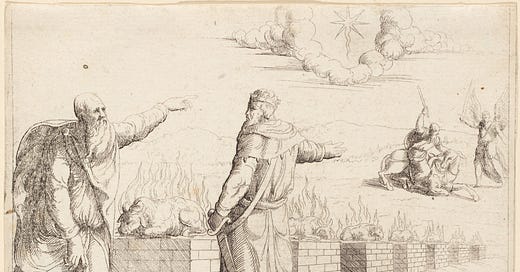וְעַתָּ֖ה בְּרַח־לְךָ֣ אֶל־מְקוֹמֶ֑ךָ אָמַ֙רְתִּי֙ כַּבֵּ֣ד אֲכַבֶּדְךָ֔ וְהִנֵּ֛ה מְנָעֲךָ֥ יְהֹוָ֖ה מִכָּבֽוֹד׃
Back with you at once to your own place! I was going to honor you richly, but יהוה has denied you the honor.”
Gimme Some Torah #746
In this story, the Sanzer Rebbe uses a verse from our Torah portion to castigate a student in public. If this had happened in modern days, we would call it an intervention. There is a fine line between an embarrassing but necessary intervention and abject humiliation:
Some people who were visiting Grand Rabbi Hayyim of Sanz told a story about a certain spoiled yeshiva student. This student, who had decided to study and be supported by his father-in-law rather than get a job, had become the subject of public rumors. According to the rumors, this student had deliberately failed to follow Jewish law in both ritual and social matters.
The trusted friends of R. Hayyim kept the rumors they heard about this student a secret because he was known as an outstanding scholar, someone who was able to simultaneously hold the qualities of Torah learning and greatness. But when the rumors about his aberrant behavior became more public, the friends of R. Hayyim revealed the matter to their esteemed rebbe.
The Shabbat of Parashat Balak arrived, and this yeshiva student came as usual to pray in the Beit Midrash of Rabbi Hayyim. The Rebbe of Sanz used to read the weekly Torah portion himself and honor his followers and their friends with aliyot to the Torah.
A slight murmur passed among the followers when the Rebbe called up that spoiled student for an aliyah to the Torah. Moreover, the Rebbe gave him the sixth aliyah, which is the most honorable of the seven aliyot, an honor normally granted only to great Torah scholars and rabbis.
But Rabbi Hayyim did not finish reading the entire sixth aliyah. Instead, he stopped two verses early and concluded with the verse: "Back with you at once to your own place! I was going to honor you richly, but God has denied you the honor. (Num. 24:11).”
The Rebbe’s words spread like a stormy wind throughout the synagogue, which was packed with people, and even the spoiled student understood the great Tzadik's intention and began to ponder repentance. In the end, the man returned to good. And his youthful sins were forgotten as if they had never been. (From Parpera’ot LaTorah, Menahem Becker, ed. (Jerusalem: Omen Publishers, 1986), vol. 4, p. 198.)
What do you think of what the Sanzer Rebbe did? Do interventions of this sort work?
•••
Thank you so much for reading Gimme Some Torah! If you can afford to purchase a paid subscription, please do—paid subscribers get access to the entire GST library!
I am the rabbi of Temple Beth El in Somerset, New Jersey, and the author of The JPS Jewish Heritage Torah Commentary.




This story seems like it could’ve been about (for?) most of the men of the Israeli Haredi community 😬😬😬😬😬😬